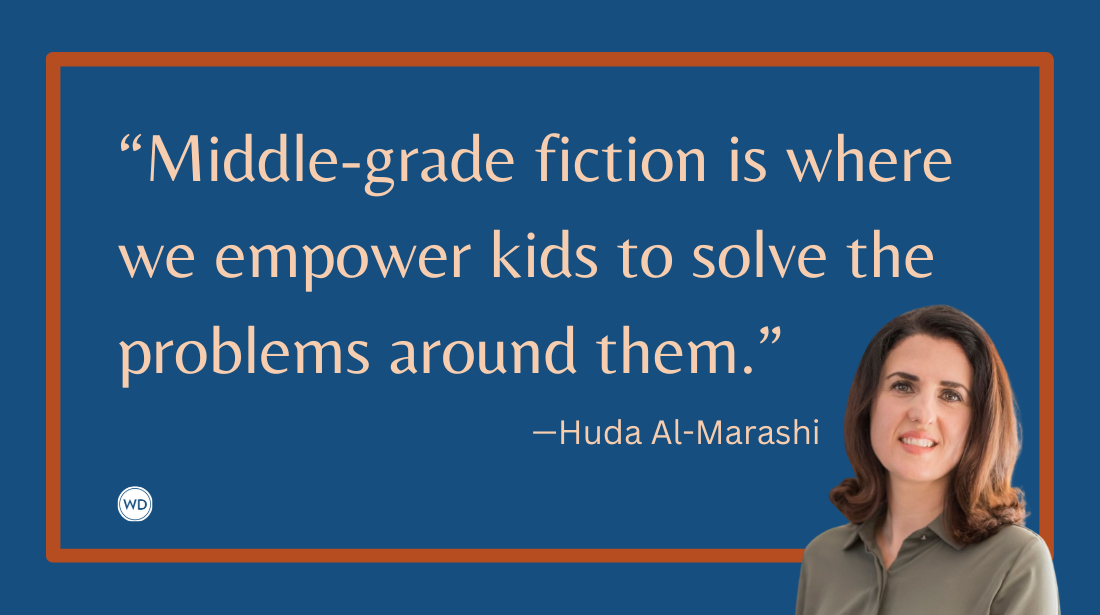On Writing a Horror Novel Without Intending to Write Horror
Novelist Evie Green shares how writing a story for fun without a genre eventually turned into her horror novel, We Hear Voices. This is her experience of writing a horror novel without intending to write horror.
When I started to write We Hear Voices, I didn't think about genre: I was too carried away with a story about a little boy with an imaginary friend that gets out of hand and a mother who fights to save her family. I wasn't writing for publication but for fun, and for several years it remained a side project, a file I opened between other projects.
It always entertained me, and perhaps because I was working on it with no particular goal in mind, it wandered off into new territory. This territory was, it transpired, quite dark. I would leave it for months at a time while I wrote and edited the books I was actually commissioned to write, and then would pop back, read what I’d written, roll my sleeves up and get back to it for a bit.
Weird and horrible things kept happening to my poor characters. The book is set in a near-future London, at the end of a pandemic, and the central character, Rachel, is a woman trying to keep her family afloat though near-poverty, while her young son is tormented by the instructions issued by the voice in his head.
After a while I mentioned it to my agent, Steph Thwaites. She immediately wanted to read it, enjoyed it as much as I did, and encouraged me to keep writing.
If I'd given it any thought I would have filed it as "speculative." If I'd thought "I'm writing horror!" I would have been paralyzed, because that sentence would have concluded with: "and I don't know how to do that." I've long enjoyed reading and watching horror, but would never have thought to try to write it, because I wasn't "a horror author." So I was just writing a story.
Three Words: "This is horror"
When it was finished, Steph sent it to Hillary Jacobson at ICM who was also enthusiastically on board, and thanks to both of them the book found its way to its perfect editor, Jen Monroe at Berkley. Jen is a brilliant editor, inspiring with the broader picture while simultaneously meticulous about detail, and the book went through many more edits.
By now I was thinking of it as sci-fi, but when Jen called me and said three words, "this is horror," it changed something. I felt as if recognizing the book as horror meant I could do whatever I wanted. That, it transpired, meant that the possessed blank-eyed children ramped up several notches, and there were also significantly more spiders.
My favorite part of the editing process was that whenever I suggested a new thing in our trans-Atlantic phone calls, it didn't matter how outlandish it was: If it made sense in the world of the book, Jen would agree enthusiastically. Thus we have an epidemic of murderous imaginary friends, a plan to evacuate this planet, and, yes, spiders.
One thing I think makes an editor brilliant, from an author's perspective, is a willingness to encourage you to push things further, rather than pull them back. Years ago, I wrote a novella with postpartum psychosis at its heart, and my biggest regret is that I accepted an editorial suggestion that pulled back the extremes of what women can do under those circumstances, even though I'd researched it extensively (I won't go into it but it involved changing a freezer to a fridge). There was none of that with We Hear Voices: quite the opposite. Everything was ramped up, and it's all the better for it.
*****
Learn from the experts on how to write a horror story that excites readers for decades (or centuries)! Even the scariest and most attention-grabbing horror story ideas will fall flat without a foundation of knowledge about the genre and expectations of the audience. In this collection, you'll find practical tips for writing horror stories that are plausible and cliché-free.
*****
There is a separate dread
We don’t talk about it much (because how could you?), but the moment you find out you're pregnant, or adopt your child, you become the caretaker of another being and the stakes in your life become higher, forever. While it's easy to be bogged down, as Rachel is, by the day to day minutiae of vegetables and bedtimes, there is a separate dread that underpins everything, the knowledge that the most important thing in your world could be taken from you with no notice.
Shocking things happen from time to time: the story of the classmate on a bike, or the child whose illness was ultimately untreatable. Every time, you know it's the luck of the draw, and all you can do is your best to find the balance between keeping your babies safe, and letting them be independent human beings. My two eldest are out rock climbing as I write, and they drove there down country lanes, and as they're 18 and 16 all I could do was say "call me when you get there," to which they replied "there’ll be no reception."
Just as bad, however—worse, maybe—is a horror that comes from within the family. That's what Rachel deals with, as six-year-old Billy recovers from the virus that has swept the world (the danger from the outside) with the help of an imaginary friend, who becomes sinister (danger from the inside). The idea of a child talking to something beyond our comprehension is not new in horror: the Exorcist, Poltergeist, even the Sixth Sense, feature something uncanny that starts in a child's brain. The juxtaposition of the innocent and the sinister is more chilling than anything.
Writing horror on the macro level
One of the strange things about writing my horror debut was the fact that as I wrote about the breakdown of society, the world kept catching up with and overtaking my narrative. I wrote about face masks being compulsory on the London Underground and now they are. I wrote about a corporation buying up housing and using it for their workers, as a new kind of workhouse, and I've since seen reports of that happening. Above all, of course, I wrote speculatively about a pandemic, and the very moment I finished the last edits, one came along.
I know that human history is filled with predictions of imminent apocalypse, but things really do feel terrifying right now. In We Hear Voices, Rachel's teenage daughter Nina is training as an astronaut. She came out of my worry that the younger generation are being bequeathed a world with a hell of a lot wrong with it. I'm not saying that people are worse now than they've been before—there's no way Henry VIII wouldn't have wanted all the private jets, for example—but the stakes are higher now as we have more technology, so can do more damage. Our children have an awful lot to deal with.
In my book an asteroid has been colonized as a jumping off point, and a new planet identified as an outpost for humans. Nina can see the way it will go: It will become a colony of the super rich unless people like her make their voices heard. That's why she's determined to go there and play her part.
Writing horror on the micro level
Swooping back down to a micro level, there are a lot of spiders in We Hear Voices. They were already there, but they multiplied once I knew I was writing horror, because I am a huge fan of spiders, and I know that lots of people (including, I later discovered, my poor editor Jen) hate them.
Spiders are wonderful, fascinating creatures. They can't digest solid food, so they cover their prey in digestive enzymes and then suck it up as a liquid. They communicate largely via vibration. Some types of spider can work together to catch and kill a creature much bigger than them. Without wanting to give away any spoilers, I'll just leave that last fact with you (I knew I was married to the right man when, during the writing of this book, he bought me a book called "All you need to know about SPIDERS" for my birthday).
Final thoughts
Accidentally writing a horror novel has taught me a lot. One of those things is: Don't shy away from a genre just because you'd feel daunted by it. I would never have set out to write horror, but now I can't wait to write more.
Another is that something you make up could very well come true before the book's published, and that is weird. And above all, I have learned the disconcerting fact that when I'm writing for fun with no restraints, what comes out is horror.
That feels like an extremely 2020 thing to discover about yourself.
*****
(Writer's Digest uses affiliate links.)
Evie Green is a pseudonym for a British author who has written professionally for her entire adult life. She lives by the sea in England with her husband, children, and guinea pigs, and loves writing in the very early morning, fueled by coffee. (Photo credit: Charlotte Knee Photography.)









